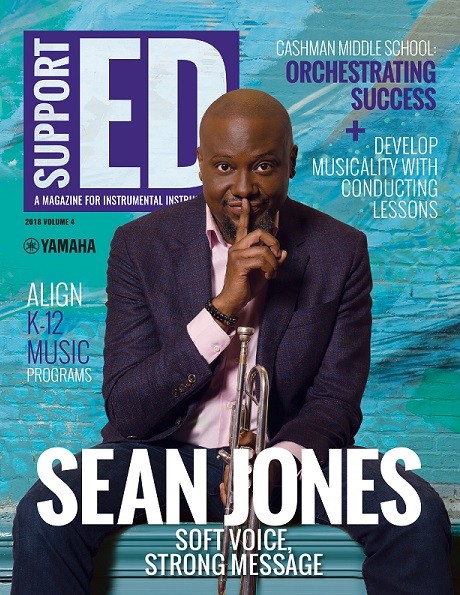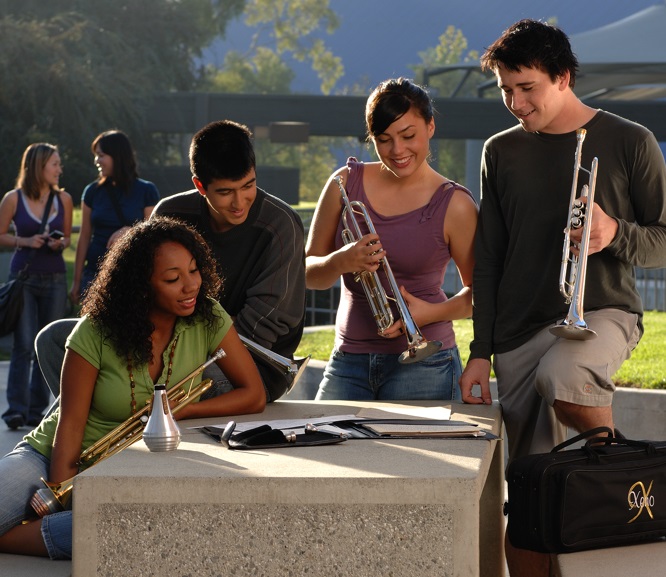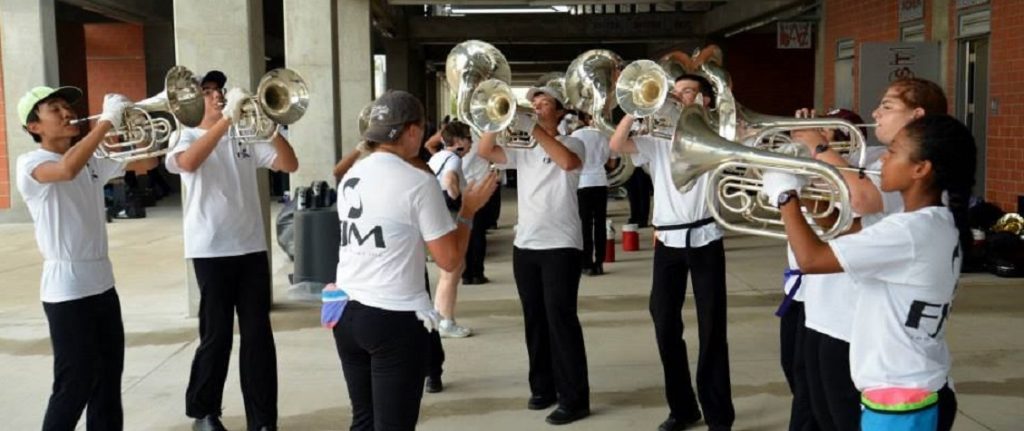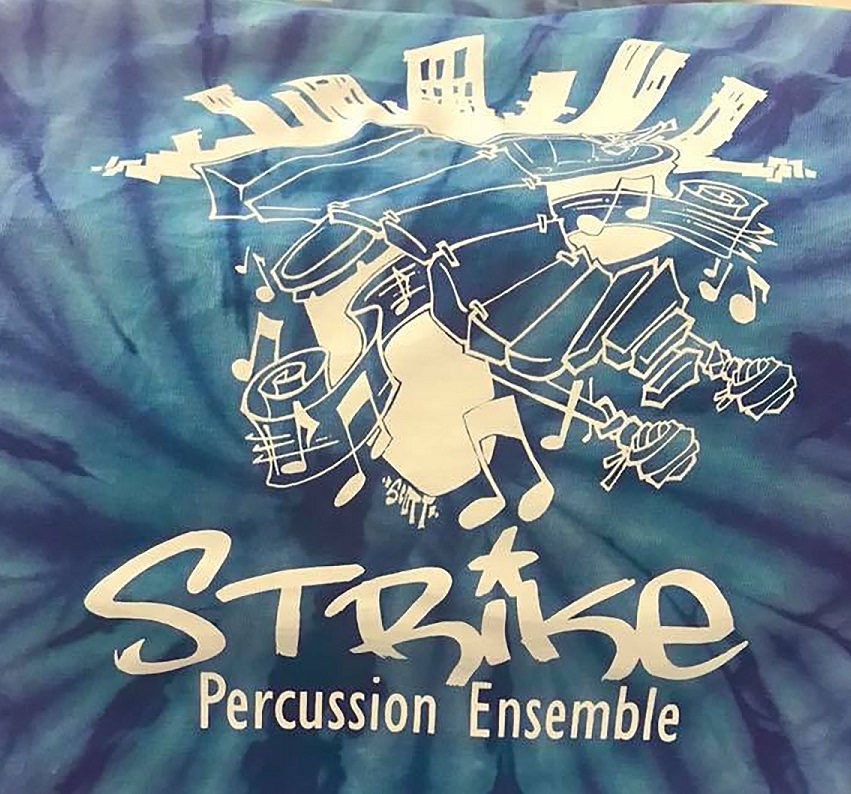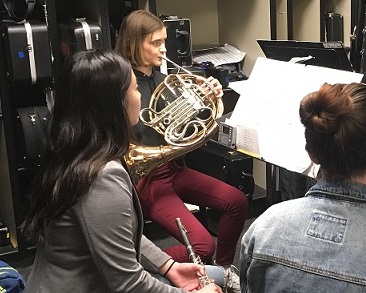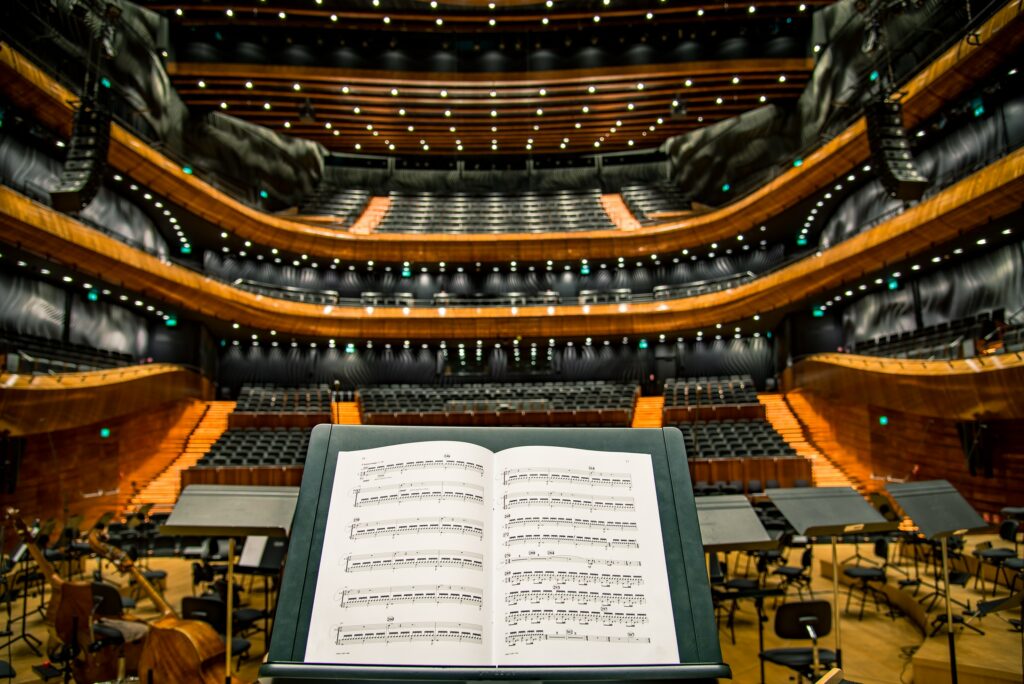Tagged Under:
High School Student Leaders Can Help Recruit Younger Music Students
Use current high school student leaders to recruit and retain music students from elementary and middle schools.
The best recruiters for music programs are our current students. When retaining music students from middle and elementary schools, your current students serve as the best public relations for your program.
The goal of recruitment is for both students and their parents to see the long view of music-making as one sequential program that starts in elementary school, continues through middle school, and concludes with high school graduation and hopefully beyond.
In addition to traditional events like the annual marching band night to bring together middle and high school students, there are other activities and opportunities that directors might consider implementing to help bridge the gaps from elementary to middle to high school programs.
Organize an Annual Elementary School Assembly
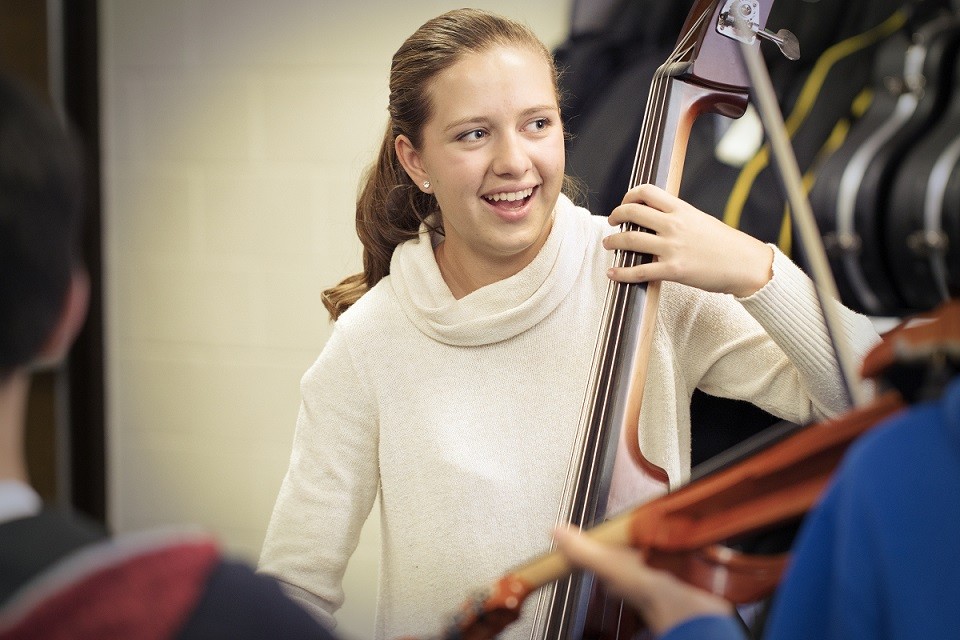 Have the high school band in full regalia march through the elementary school to an energetic cadence that will bring all the students into the performance venue. At some point during the student-led performance, the drum major/conductor should ask, “Who would like to conduct the band?” It’s likely that every hand will immediately be raised.
Have the high school band in full regalia march through the elementary school to an energetic cadence that will bring all the students into the performance venue. At some point during the student-led performance, the drum major/conductor should ask, “Who would like to conduct the band?” It’s likely that every hand will immediately be raised.
Give the chosen youngster a baton and help him or her conduct a march or even the high school fight song. At this young age, students are the most impressionable, and every student in the school will wish they had been chosen to be the student conductor!
This activity could predispose elementary students to want to be members of the high school band and, thus, join the middle school music program.
Encourage Summer Internships
New instrumentalists will quickly understand what a music education program can offer in a more individualized, casual setting, such as a half-day summer lesson program. High school students would benefit immeasurably from serving as intern instructors at these summer camps. They will gain peer coaching experience while being guided and supervised by directors, and beginners will view these high school students as leaders to emulate. Everyone wins!
Maintain Ties to Elementary and Middle Schools
High school students can remain engaged with their elementary and middle school programs to clearly demonstrate that instrumental music reaches beyond the elementary and middle school years. They can speak to younger students and parents from their former schools about the short- and long-term advantages of active participation in instrumental music.
High schoolers can also serve as emcees for the elementary or middle school concerts or other appropriate events. Working with a prior music director shows the connection from one program to the next.
High school students can offer to teach group lessons during the year or even assist with tutoring in a supervised setting. They can sit in on rehearsals at the elementary or middle schools to provide musical leadership in the various sections.
Provide Testimonials
High school music students can talk about the balance that can be achieved with participation in multiple activities, such as sports, cheerleading, drama or debate, in addition to band.
A photo of a football player in uniform holding his trombone sends a great message that students can participate in music along with other activities. Student leaders can speak with middle school students who may be thinking of leaving the program and counsel them in how participation in multiple activities can be accomplished — especially in regard to scheduling.
A short speech or presentation from a high school student leader at the beginning of a rehearsal at the middle school can help greatly. The high schooler can address any objections or questions regarding the music program from the middle school group. This tactic provides a better chance of keeping a student in the program by allaying his or her concerns beforehand rather than trying to reverse a decision to drop the program.
Host a Big Brother/Big Sister Instrument Night
High school leaders can offer to help beginning students select their instruments for the first time. At these events, parents can meet the high school director and see the continuum within the program. Beginners will love working with the high school students.
Send Notes of Encouragement
A nice touch that can go a long way are short notes of encouragement to elementary and middle school students. High school students can write these notes to younger students playing a like instrument, praising their exemplary talents as demonstrated in a recent concert or at solo and ensemble or large group festivals.
For more ideas, read “Bridging the Gap Between Middle School and High School” from the Music Achievement Council.
This article originally appeared in the 2018 V4 issue of Yamaha SupportED. To see more back issues, find out about Yamaha resources for music educators, or sign up to be notified when the next issue is available, click here.











